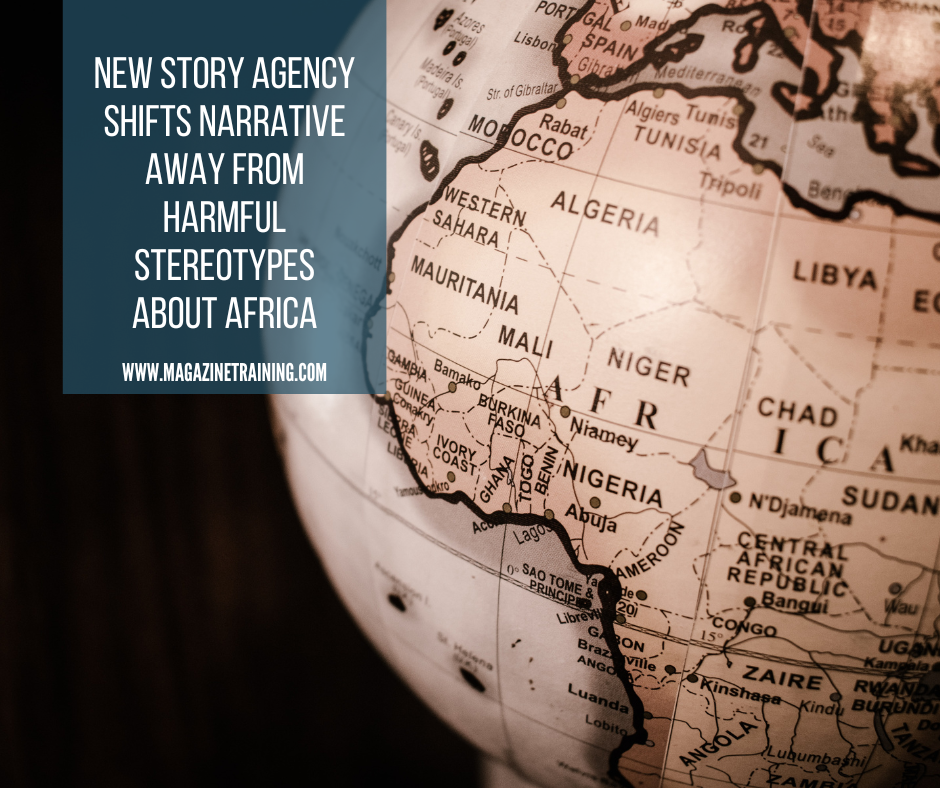
Following a news conference during the World Economic Forum in Davos, Switzerland in 2020, Ugandan climate activist Vanessa Nakate was cropped out of a photo taken with her white fellow activists. The photo was featured in reporting by the Associated Press and various other international media outlets. Outraged by the situation, Nakate became a strong voice advocating for how climate activism and emerging voices in Africa should be represented in the media.
Media coverage about Africa and Africans has received deserved criticism over the years. In his popular satire, “How to write about Africa,” published in 2009, Kenyan writer and activist Binyavanga Wainaina critiqued the racial stereotypes often used by Western journalists and storytellers when writing about the continent. Later, in 2015, some young Africans began using the hashtag #TheAfricaTheMediaNeverShowsYou to crowdsource beautiful images showcasing the diversity and richness of the continent beyond media stereotypes. Also in 2015, a group of Kenyans similarly trended the hashtag #SomeoneTellCNN on social media to express their displeasure over a CNN report describing Kenya as “a hotbed of terror.”
In an effort to sustainably address the often negative, stereotype-laden media coverage, Africa No Filter, a nonprofit organization committed to rewriting, defining and amplifying African narratives, launched bird, the continent’s first digital story agency, in 2021. Bird aims to report stories that cover the advancement of people and places that spotlight more of Africa’s beauty and promise, pushing coverage away from tired, damaging narratives.
“We live and breathe harmful and stereotypical narratives about Africa every day. One of the first things we looked at when we started was research on narratives about Africa,” Moky Makura, the executive director of Africa No Filter, told IJNet. “We went through nearly 60 documents — research papers, reports, books, academic journals from 2000 — that had been written on African narratives. [We] also surveyed 38 African editors and analyzed over 300 articles from 60 African news outlets across 15 countries in 2020. The five key frames through which most stories were told about Africa are poverty, conflict, corruption, disease and poor leadership.”
Upon identifying these prevalent stereotypes — and that one third of stories in African news outlets are sourced from foreign media — Makura determined that African media should be empowered to cover, tell and deliver stories with more positive angles about the continent. To achieve this goal, bird commissions and distributes engaging multimedia reporting produced by journalists and other content creators for free to its 20 content partners, which include leading media outlets and digital publishers across Africa. To date, bird has produced over 350 stories from more than 40 contributors.
According to Tom Kirkwood, bird’s managing editor, these stories are loaded onto a purpose-built website from where the stories can be downloaded by their partners. “The content partners are digital news platforms that have signed our memorandum of understanding, agreeing for us to count reads of the stories. We can also count the number of stories read by readers on our partner sites — thanks to a piece of code, the snippet counter, that we provide with each story,” said Kirkwood. “That way, we can gauge the efficacy of the funding provided for the bird project.”
by Agbaje Ayomide, International Journalists Network
Photo by James Wiseman on Unsplash
Related posts
Magazine Training International’s mission is to encourage, strengthen, and provide training and resources to Christian magazine publishers as they seek to build the church and reach their societies for Christ.

